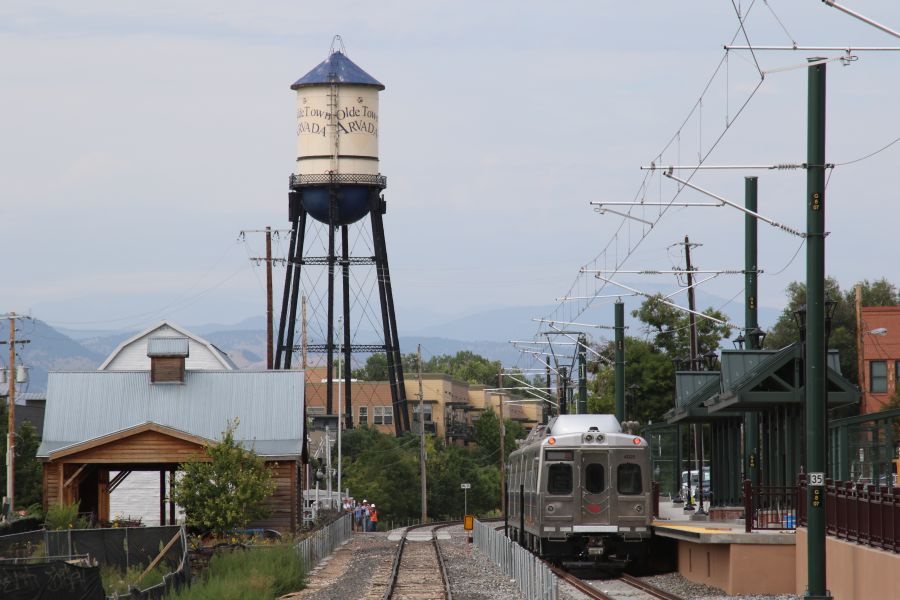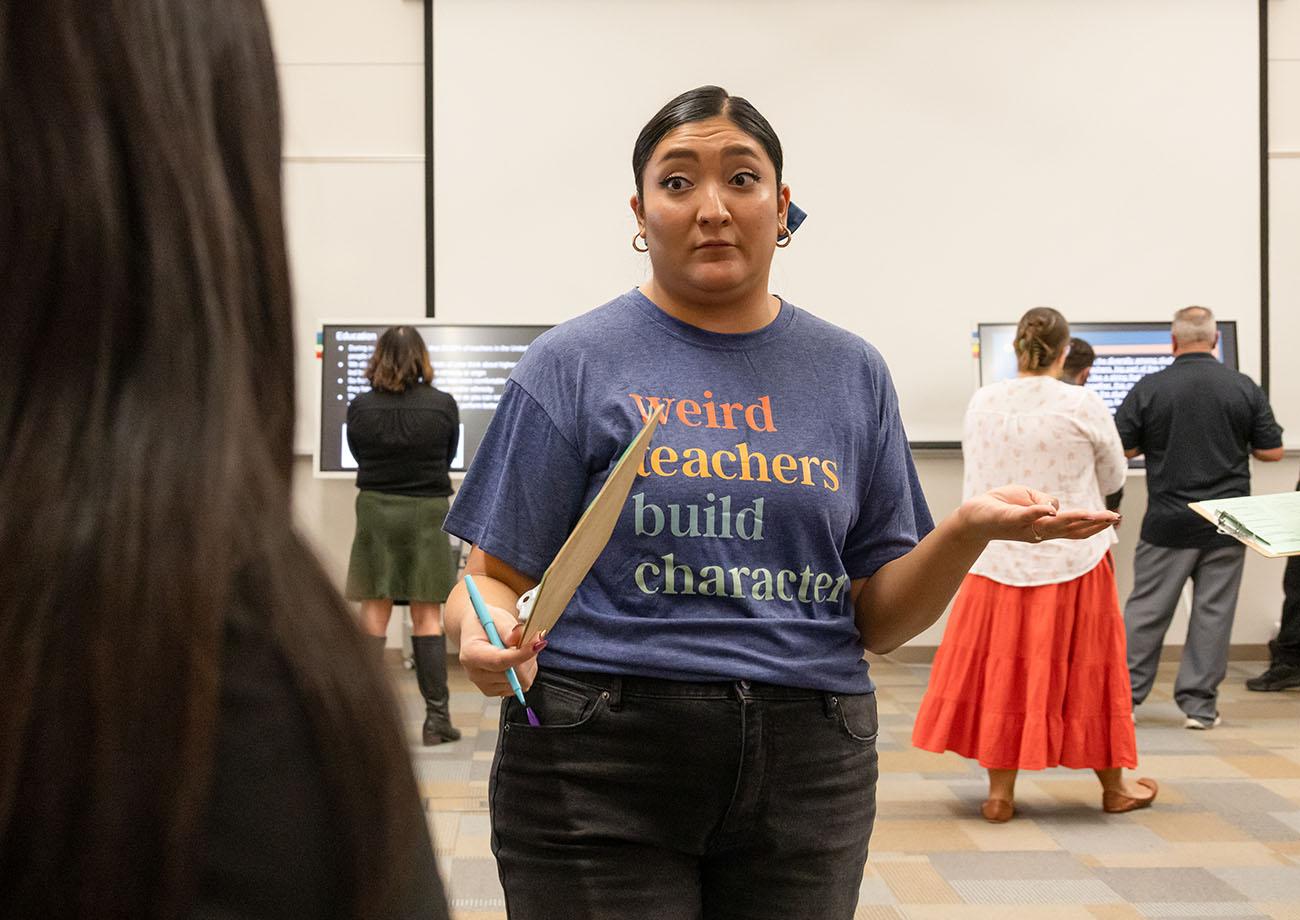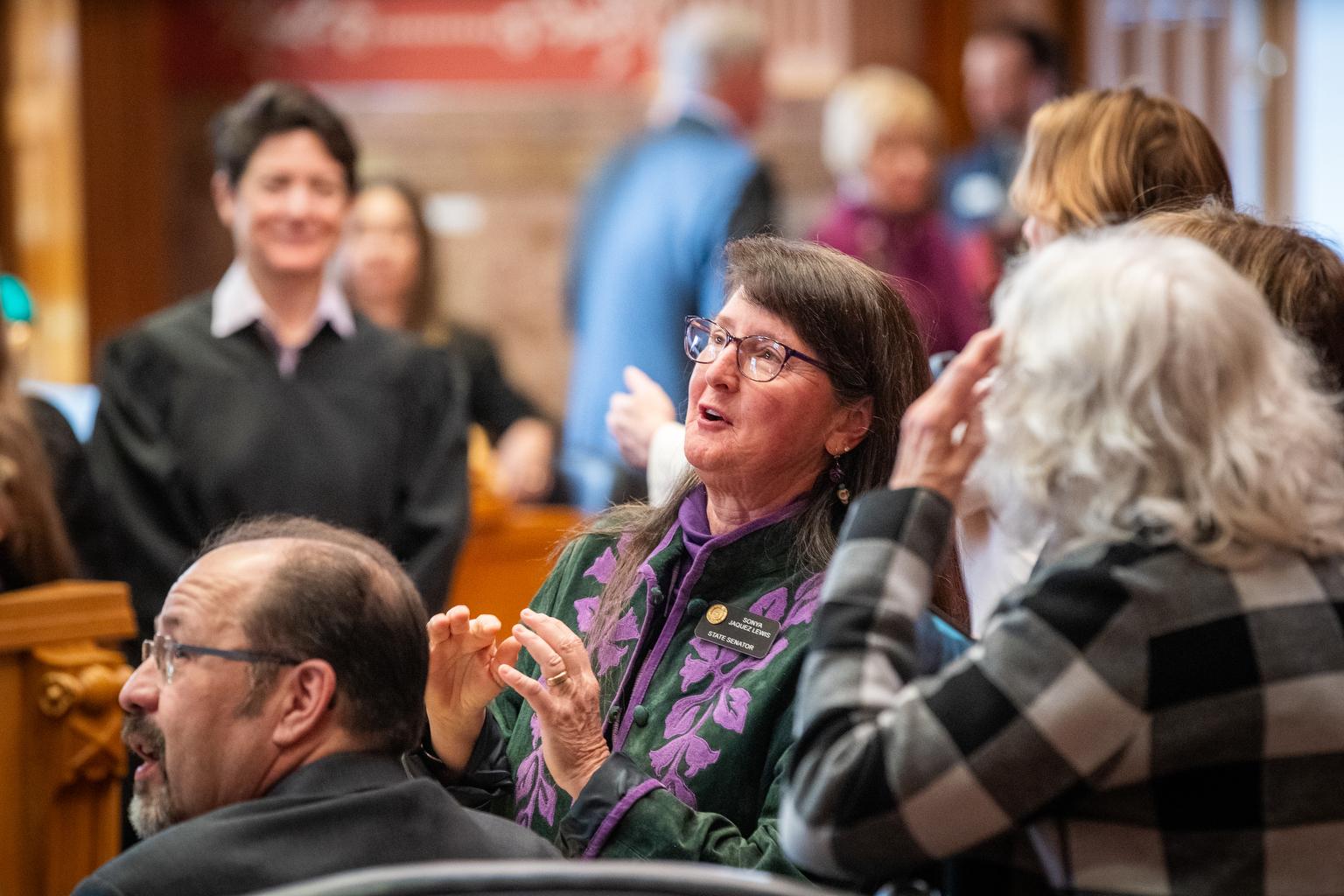

Arvada hasn’t had passenger rail service since 1950, when the Denver Tramway Company left town. And the suburban city northwest of Denver is this close to getting it back.
The one thing standing in the way, in the eyes of Mayor Marc Williams, is the Colorado Public Utilities Commission. That regulatory body recently denied the Regional Transportation District’s request to conduct final testing of the long-awaited G Line from Denver’s Union Station to Arvada.
At a public meeting in Arvada Wednesday night, Williams implored his impatient constituents to write Gov. John Hickenlooper and the PUC itself demanding they let the train line open. He even promised to post the relevant addresses on the city of Arvada’s website.
"Put that pressure on them to say enough is enough. Let's get this over with,” Williams told the crowd.
At the heart of the issue is a wireless crossing gate system used on RTD’s A Line to Denver International Airport and B Line to Westminster that didn’t work properly for months after those two lines opened last year. The wireless system is far more complicated than legacy crossing systems but was unproven in its current use. It was chosen because it meets the federal government’s Positive Train Control requirements and was compatible with RTD’s electric commuter rail.
An identical system will be used on the G Line, so the Federal Railroad Administration and the PUC said RTD couldn’t open the G Line until the system was fixed. The three lines make up the $2.2 billion Eagle P3 project.
RTD now says the crossing gates are working properly, even though they go down sooner and stay down longer than initially designed. PUC commissioners worry the extended crossing gate times could lead to drivers and pedestrians making unsafe crossings. But the FRA recently agreed with the RTD, and gave its conditional approval to move forward with the G Line.
While the FRA’s approval did not supersede the PUC, it split the agency’s three commissioners. Two have recommended RTD scrap its crossing gate system and start over, while a third is siding with RTD. On Wednesday, the PUC’s two-commissioner majority issued an order formally denying RTD’s request but allowing the transit agency to start an appeal process. RTD officials say that will happen soon.
More than a hundred residents attended the town hall at the Arvada Center for the Arts, with many initially aiming their fire at RTD and its contractor, Denver Transit Partners, for the delays. But more than once, Williams interjected during the 90-minute event to focus attention on the PUC.
"There's, I think, a mentality down there, of 'We know more than the FRA.' Well, frankly I think the FRA has been dealing with crossings a heck of a lot longer than the Colorado PUC. So we've got a little bit of chest pounding as to who's more concerned about safety. And certainly I think the FRA is equally as concerned about safety."
Toward the end of the event, RTD’s Nate Currey, senior manager of public relations, thanked the crowd for their years of patience.
“We know it sucks,” he said. “We're not happy about it either. We just want to get the darned train open as well. But hang in there, please.”
One resident, Alicia Joy, said she’s been waiting for a year to take the train to downtown Denver. “So when, when will we we have the line?” she asked.
RTD officials wouldn’t commit to a date, only saying they hoped it would be up and running in 2018. So for a city that’s waited nearly seven decades for trains to return, it appears that they can start counting down in months.








